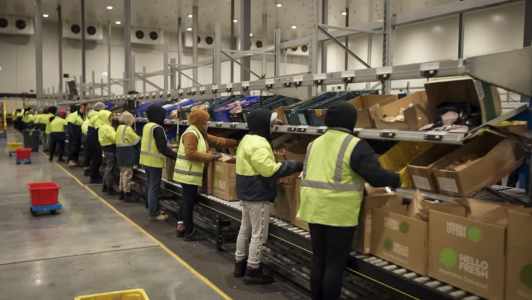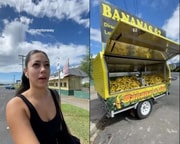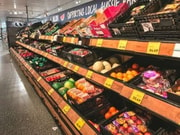Farmers seek direct partnerships with meal kit and ready-made meal makers
By
ABC News
- Replies 0
Boxes of produce fly out the door at a food distribution centre in Sydney's west, with a conveyer belt whisking away packed meal kits in a high-tech warehouse.
The meal kits typically include portioned ingredients such as fresh vegetables, meat, sauces, spices and a recipe card with step-by-step instructions.
HelloFresh was one of the first entrants into the Australian meal kit market, now estimated to be worth more than $1 billion a year, with new brands continuing to enter the competitive space.
Chief executive Tom Rutledge said the company's new distribution centre opened in 2024.
"We handle 250 tonnes of fruit and veg every week through this facility," he said.
"We get that from a network of suppliers."
New market opportunities for farmers
The rising popularity of meal kits in Australia has created new opportunities for farmers to bypass traditional supply chains and sell their produce directly to those companies.Bundaberg-based farming operation Sunripe has diversified its business by growing tomatoes, capsicums and zucchinis for HelloFresh.
Director Luke De Paoli said prices were locked in for 12 months at a time, in contrast to the more common week-to-week negotiations.
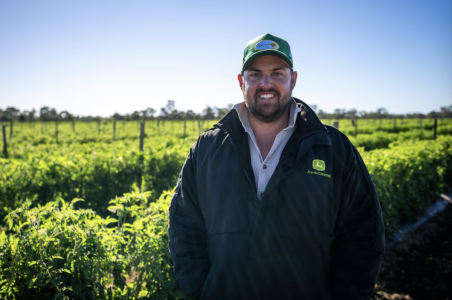
Sunripe director Luke De Paoli says fixed pricing helps with long-term planning. Image source: ABC Landline / Cameron Lang.
"Having a set price allows us to budget for what we need to grow," Mr De Paoli said.
"We get an eight-week forecast on volume, so we can adjust what we're doing elsewhere to make sure we've got the volume for HelloFresh."
Tomatoes have recently been in short supply across Australia, reaching as high as $100 a box, the highest price since Cyclone Debbie hit in 2017, according to Mr De Paoli.
But Sunripe has no regrets about its fixed price arrangements and is more interested in the long game and setting up long-term relationships.
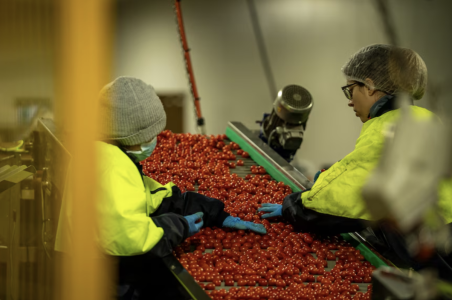
Sunripe processes almost 450,000 punnets of snacking tomatoes each week. Image source: ABC Landline / Cameron Lang.
"When we're fixed pricing, we're making money all the time. It's not up and down, you've got the security," Mr De Paoli said.
Mr Rutledge established HelloFresh in Australia in 2012 and said the connections built with growers have been "hugely important".
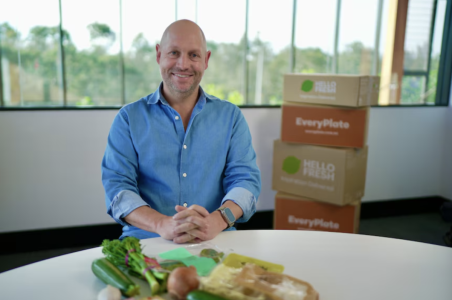
Tom Rutledge was approached by the German-based brand to launch the service in Australia. Image source: ABC Landline / Laurence Curson.
"To make sure we're getting sufficient volumes, we want to have long-standing relationships with our suppliers, so they understand what our needs are and are able to supply us in time with the right, quality ingredients," Mr Rutledge said.
He said the business model, which included extensive planning and seasonal menus, allowed them to accept more varied specifications from producers.
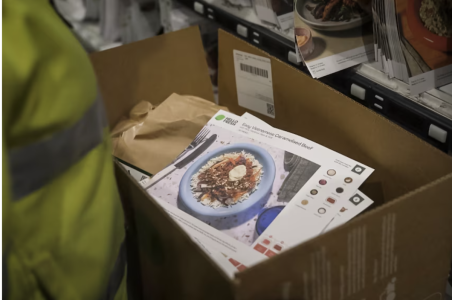
Each week, 250 tonnes of fruit and vegetables make their way into the company's meal kits. Image source: ABC Landline.
"We can take a different spec to what is required by supermarkets because we know the intended use of those items [in recipes]," he said.
"Essentially, every carrot in our supply chain has someone's name on it and an intended use. And with that, we're able to ensure freshness [and] really reduce waste."
This gives Sunripe more flexibility when fulfilling orders.
Mr De Paoli said it meant his customers — which also include major retailers and food service suppliers — were less likely to be competing for produce with the same specifications.
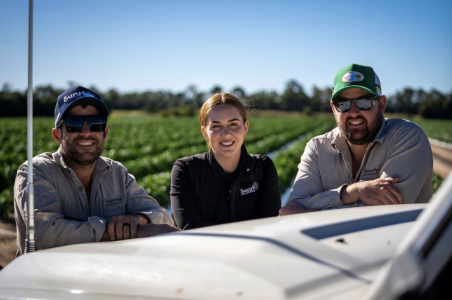
Jason Gatt (left), Samara and Luke De Paoli at one of Sunripe's 25 farms in the Bundaberg region. Image source: ABC Landline / Cameron Lang.
"If it's a capsicum they [HelloFresh] will take a half-red, half-green one [at the] mid-ripening stage," he said.
The rise of ready-made meal services
Ready-made meal offerings are also growing in Australia, both in supermarkets and via home delivery.Options are vast and include calorie-controlled, high-protein and vegan meals.
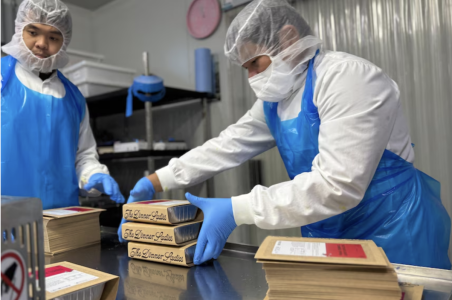
The Dinner Ladies production line in south-east Sydney makes more than 40,000 meals every week. Image source: ABC Landline / Courtney Wilson.
The Dinner Ladies is a Sydney-based food service that specialises in "home-style" cooking at scale.
One of its key target markets is young families and the home-delivered meals are particularly popular with new mothers.
The Dinner Ladies CEO Brad Rom said their kitchens produced more than 40,000 frozen meals each week, with plans to double that in coming years.
"We have quite a large meal range… with quite a large amount of complexity," Mr Rom said.
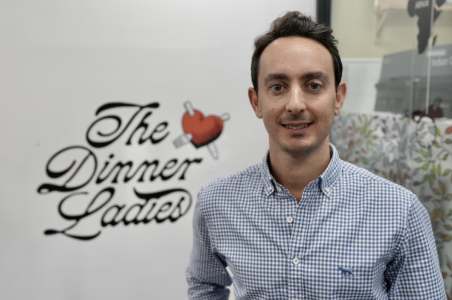
Brad Rom plans to double the company's output over the next few years. Image source: ABC Landline / Laurence Curson.
He said the COVID-19 pandemic had changed many people's opinions and created positive perceptions about home deliveries.
"Our customers who are busy, who are time poor and who like good quality food are prepared to pay for a service such as ours," he said.
Bypassing traditional supply chains
Mr Rom said when dealing with direct suppliers it was important to have similar values."It's also really important to our customers. We get questioned quite a lot about where our ingredients come from," he said.
Farmer Luke Winder owns Tathra Place Free Range and supplies free-range ducks to The Dinner Ladies.
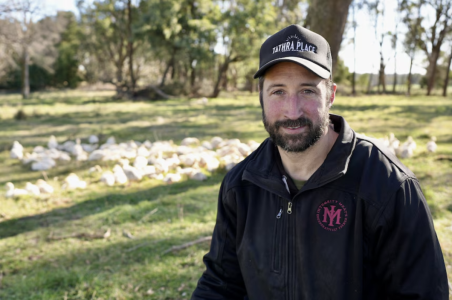
Free-range duck farmer Luke Winder says he benefits from the regular orders. Image source: ABC Landline / Laurence Curson.
Each week he delivers about 150 kilograms of duck from his farm near Taralga.
"That can go right up to well over 200 kilos a week so it's pretty amazing," Mr Winder said.
"Those big consistent customers that are just week-in, week-out are pivotal."
He said cutting out the intermediary and layers of logistics meant a better, cheaper, and more consistent product.
"It's very cost effective and they're getting their margin and I'm getting mine and there's no-one in between and it's fantastic."
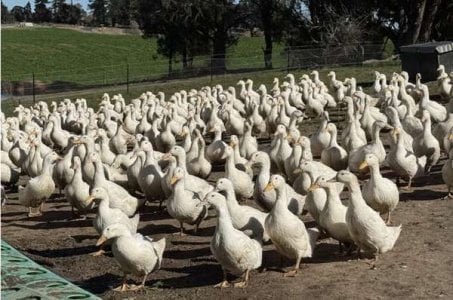
Mr Winder grows Aylesbury-Pekin cross ducks at his farm near Taralga, NSW. Image source: ABC Landline / Courtney Wilson.
The ducks are used in a rotating menu of duck confit, duck ragu and duck red curry with lychee. Rendered fat is also used for duck fat potatoes.
Joshua Guild is the head of planning at The Dinner Ladies and said waste was kept to a minimum.
"We get the bones and we make a beautiful duck stock as well, and that's the basis to build our rich duck gravy we have for Christmas," Mr Guild said.
"[We also make] duck confit of course and duck sausage rolls."
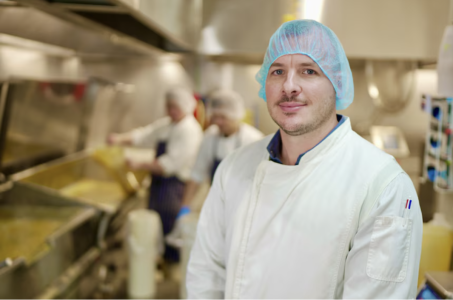
Joshua Guild wants to build more relationships with local farmers. Image source: ABC Landline / Laurence Curson.
Mr Guild would like to emulate this type of direct relationship with more suppliers, particularly local ones.
"We want to partner up with as many feel-good producers and people who are doing good things for the environment and good things for the animal," he said.
Read more: Running out of fresh tomatoes? Discover genius ways to make canned taste even better!
Written by: Mia Ginnivan and Courtney Wilson, ABC News.
Last edited by a moderator:

